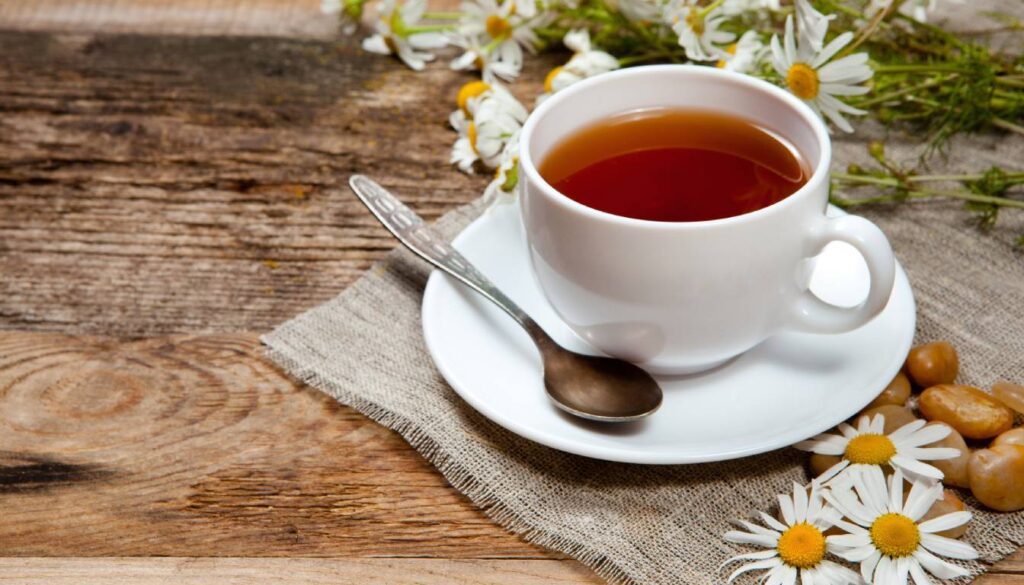Herbal remedies have been trusted for centuries to treat various ailments, including alcohol withdrawal. This condition is serious and occurs when someone suddenly stops heavy drinking. Symptoms can be mild to severe: anxiety, tremors, seizures, and in extreme cases, death. So what are the top Herbal Remedies for Alcohol Withdrawal?
While traditional medical interventions such as medication-assisted treatment and therapy are effective in treating alcohol withdrawal, many people are turning to herbal remedies as a natural alternative or supplement to traditional treatments. Some of the most commonly used herbs for alcohol withdrawal include passionflower, milk thistle, and kudzu. These herbs can help ease symptoms of withdrawal, reduce alcohol cravings, and promote overall health and well-being during the detox process. However, it’s important to note that herbal remedies should not be used as a replacement for traditional medical treatments, and should only be used under the guidance of a healthcare provider.
Understanding Alcohol Withdrawal
As someone who has experienced alcohol withdrawal, I know firsthand how challenging it can be. It is essential to understand the symptoms and risks of alcohol withdrawal to ensure a safe and effective detox.
Symptoms of Alcohol Withdrawal
Alcohol withdrawal symptoms can vary from person to person, but common symptoms include nausea, anxiety, insomnia, cravings, stress, sleep disturbances, and vomiting. More severe symptoms include headaches, hallucinations, delirium tremens, and seizures. These symptoms can be life-threatening and require immediate medical attention.
Risks of Withdrawal – Herbal Remedies Alcohol Withdrawal
Withdrawal syndrome can occur in those who have become physically dependent on alcohol. The risk of developing withdrawal syndrome is higher in those who have a history of liver disease, have been drinking heavily for a prolonged period, or have previously experienced withdrawal symptoms. It is essential to seek medical attention before attempting to detox at home, as the risk of relapse is high, and withdrawal symptoms can be severe.
It is important to approach alcohol detox with caution and seek medical attention if necessary. While there are many herbal remedies for alcohol withdrawal, it is essential to remember that they are not a substitute for medical treatment. If you are experiencing withdrawal symptoms, seek medical attention immediately to ensure a safe and effective detox.
Natural Approaches to Manage Alcohol Withdrawal – Herbal Remedies Alcohol Withdrawal
Alcohol withdrawal can be a difficult and uncomfortable experience. However, there are natural approaches that can help manage the symptoms of alcohol withdrawal. In this section, I will discuss some of the natural approaches that can help alleviate the symptoms of alcohol withdrawal.
Mindfulness and Meditation – Herbal Remedies Alcohol Withdrawal
Mindfulness and meditation can help manage the symptoms of alcohol withdrawal. Meditation is an excellent tool for cultivating mindfulness. It can help you manage stress and anxiety, which are common symptoms of alcohol withdrawal. Mindfulness is a state of heightened awareness of your surroundings and yourself.
Herbal Remedies – Herbal Remedies Alcohol Withdrawal
Herbal remedies can be helpful in managing the symptoms of alcohol withdrawal. Kudzu, passionflower, valerian, hops, lemon balm, angelica, cayenne pepper, and dandelion are some of the herbs that can help alleviate the symptoms of alcohol withdrawal. Milk thistle is another herb that can help detoxify the liver, which can be helpful in managing the symptoms of alcohol withdrawal.
Nutritional Supplements – Herbal Remedies Alcohol Withdrawal
Nutritional supplements can be helpful in managing the symptoms of alcohol withdrawal. Vitamins, minerals, and electrolytes are some of the nutritional supplements that can be helpful in managing the symptoms of alcohol withdrawal. Vitamin B, vitamin C, niacin, and multivitamins are some of the vitamins that can be helpful in managing the symptoms of alcohol withdrawal.
Acupuncture – Herbal Remedies Alcohol Withdrawal
Acupuncture can help manage the symptoms of alcohol withdrawal. It can help alleviate stress and anxiety, which are common symptoms of alcohol withdrawal.
Lifestyle Changes – Herbal Remedies Alcohol Withdrawal
Lifestyle changes can help manage the symptoms of alcohol withdrawal. Exercise can help alleviate stress and anxiety, which are common symptoms of alcohol withdrawal. Hydration is also important, and drinking water and sports drinks can help replenish fluids and electrolytes lost during alcohol withdrawal. Having a support system, such as a family member, friend, or support group, can also help manage the symptoms of alcohol withdrawal.
Natural approaches can help manage the symptoms of alcohol withdrawal. Mindfulness and meditation, herbal remedies, nutritional supplements, acupuncture, and lifestyle changes are some of the natural approaches that can help alleviate the symptoms of alcohol withdrawal.
Alternative Treatment Options – Herbal Remedies Alcohol Withdrawal

If you or someone you know is struggling with alcohol addiction, there are alternative treatment options available that can help. While traditional medical detox and rehab centres are often recommended, other options can be effective as well.
Therapy – Herbal Remedies Alcohol Withdrawal
One alternative treatment option for alcohol addiction is therapy. Talking to a therapist can help you identify the underlying causes of your addiction and develop coping mechanisms to deal with stress, anxiety, and depression. A therapist can also help you work through any past traumas that may be contributing to your addiction.
Online Support Groups – Herbal Remedies Alcohol Withdrawal
Another alternative option is online support groups. These groups provide a supportive community for individuals struggling with alcohol addiction. They offer a safe and anonymous space to share experiences, receive encouragement, and access resources. Online support groups can be particularly helpful for individuals who may not have access to in-person support groups or who prefer the anonymity of online communities.
Intensive Outpatient Treatment – Herbal Remedies Alcohol Withdrawal
Intensive outpatient treatment is another alternative option for alcohol addiction. This type of treatment involves attending therapy sessions and support groups several times a week while still maintaining daily responsibilities such as work or school. Intensive outpatient treatment can provide a more flexible and affordable option for those who cannot commit to inpatient rehab or medical detox.
It is important to note that alternative treatment options should not replace medical detox or rehab if they are needed. It is always important to consult with a healthcare provider to determine the best course of treatment for your individual needs.
The Importance of Professional Treatment for Alcohol Withdrawal
As someone who has experienced the difficulties of alcohol withdrawal, I know how tempting it can be to try to go through the process alone. However, I strongly advise against attempting to manage alcohol withdrawal without professional help.
Alcohol withdrawal can be a dangerous and potentially life-threatening process, particularly for those who have been consuming large amounts of alcohol for an extended period. Symptoms of alcohol withdrawal can range from mild to severe and can include anxiety, tremors, seizures, and delirium tremens [1].
Seeking professional help for alcohol withdrawal is crucial for several reasons. First, medical professionals can provide medications that can help alleviate symptoms and prevent complications. For example, benzodiazepines such as diazepam and lorazepam can help reduce the risk of seizures and delirium tremens [2].
Second, professional treatment can provide a safe and supportive environment for individuals going through alcohol withdrawal. This can be particularly important for those who have a history of relapse or who have tried to quit drinking on their own in the past.
Finally, seeking professional help for alcohol withdrawal can be an important first step in the recovery process. Medical professionals can help connect individuals with resources and treatment options that can help them overcome their addiction and maintain sobriety in the long term.
While it may be tempting to try to manage alcohol withdrawal alone, seeking professional help is essential for ensuring a safe and successful recovery.
[1] https://www.mayoclinic.org/diseases-conditions/alcohol-withdrawal/symptoms-causes/syc-20369224
[2] https://www.ncbi.nlm.nih.gov/pmc/articles/PMC4085800/
Before You Go – Herbal Remedies Alcohol Withdrawal

Herbal remedies can be a helpful addition to traditional treatments for alcohol withdrawal. However, it is important to note that these remedies should not be used as a substitute for medical treatment.
Some commonly used herbs for alcohol withdrawal include milk thistle, chamomile, and hovenia dulcis. Milk thistle has been shown to have a protective effect on the liver, while chamomile can reduce alcohol cravings and withdrawal symptoms. Hovenia dulcis, also known as the oriental raisin tree, has been used in Chinese medicine for centuries to treat alcoholism and hangovers.
It is important to note that while herbal remedies can be effective, they may also have side effects and can interact with other medications. Therefore, it is important to consult with a healthcare professional before using these remedies.
In addition to herbal remedies, other natural treatments for alcohol withdrawal include acupuncture, vitamins, and exercise. Acupuncture can help restore balance to dopamine levels, which can reduce the desire to drink alcohol. Vitamins such as B-complex and magnesium can also help reduce withdrawal symptoms. Exercise can help reduce stress and anxiety, which can also be beneficial during the withdrawal process.
Overall, it is important to seek professional medical help when experiencing alcohol withdrawal. Herbal remedies and natural treatments can be used in conjunction with medical treatment to help alleviate symptoms and aid in the recovery process.
Herbal Remedies Alcohol Withdrawal Linking To Our Homepage
The topic of Herbal Remedies for Alcohol Withdrawal is a fascinating one, and it’s a subject we delve into on our home page, theherbprof.com. The more we learn about these remedies, the more valuable our page becomes to readers like you.
Our home page is a gold mine of information on this topic. As we uncover more about these remedies, our page grows in richness and depth. This growth, in turn, helps us and our readers better understand and utilize these remedies.
Now, let’s talk about traffic. Herbal remedies for alcohol withdrawal are a trending topic. People are constantly on the lookout for natural ways to improve their health. By featuring these remedies on our page, we d
References – Herbal Remedies Alcohol Withdrawal
Little Herb Encyclopedia, by Jack Ritchason; N.D., Woodland Publishing Incorporated, 1995
The Ultimate Healing System, Course Manual, Copyright 1985, Don Lepore
Planetary Herbology, Michael Tierra, C.A., N.D., Lotus Press, 1988
Handbook of Medicinal Herbs, by James A. Duke, Pub. CRP Second Edition 2007
The Complete Medicinal Herbal, by Penelope Ody, Published by Dorling Kindersley
Check the Following Articles!
Will Cilantro Grow Back After Cutting? Regrowth Process
Herb That Tastes Like Licorice: Characteristics and Uses
Herb Window Box: A Guide to Growing Fresh Herbs
Frequently Asked Questions – Herbal Remedies Alcohol Withdrawal
What natural supplements aid in the management of alcohol withdrawal symptoms?
There are several natural supplements that can help manage alcohol withdrawal symptoms. Kudzu, for instance, is a powerful antioxidant that can encourage the growth of new liver cells and reduce cravings in recovering alcoholics [1]. Cayenne pepper, on the other hand, can help reduce anxiety and irritability [1]. Passionflower is another natural supplement that has been shown to help reduce anxiety and promote relaxation [2].
What non-alcoholic alternatives can help reduce the desire to drink?
Several non-alcoholic alternatives can help reduce the desire to drink. One of the most effective is exercise, which can help reduce stress and anxiety while promoting the release of endorphins [3]. Other alternatives include meditation, yoga, and deep breathing exercises, all of which can help promote relaxation and reduce stress levels [3].
What are the benefits of Ashwagandha for individuals recovering from alcohol dependency?
Ashwagandha is an adaptogenic herb that has been shown to help reduce stress and anxiety levels in individuals recovering from alcohol dependency. It has also been shown to help improve overall mood and cognitive function. Additionally, ashwagandha can help regulate the body’s stress response, which can be helpful for individuals dealing with the physical and emotional stress of alcohol withdrawal.
How can one effectively mitigate the onset of alcohol withdrawal symptoms?
One of the most effective ways to mitigate the onset of alcohol withdrawal symptoms is to gradually taper off alcohol consumption rather than quitting cold turkey. This can help reduce the severity of withdrawal symptoms and make the process of quitting alcohol less stressful on the body. Additionally, staying hydrated, getting plenty of rest, and eating a healthy, balanced diet can help support the body and reduce the risk of complications during the alcohol detoxification process.
What dietary changes can support the body during the alcohol detoxification process?
During the alcohol detoxification process, it is important to eat a healthy, balanced diet that is rich in nutrients and antioxidants. This can help support the body’s natural detoxification processes and reduce the risk of complications. Some foods that are particularly beneficial during this time include leafy greens, berries, nuts, and lean protein sources.
Are there any herbal teas known to alleviate the discomfort associated with alcohol withdrawal?
Yes, there are several herbal teas that can help alleviate the discomfort associated with alcohol withdrawal. Chamomile tea, for instance, can help promote relaxation and reduce anxiety levels. Valerian root tea is another option that can help promote relaxation and improve sleep quality. Finally, lemon balm tea has been shown to help reduce anxiety and promote relaxation.
[1] https://www.herbal-supplement-resource.com/10-natural-herbs-for-alcohol-withdrawl/ [2] https://www.ncbi.nlm.nih.gov/pmc/articles/PMC3573577/ [3] https://www.medicalnewstoday.com/articles/324475

